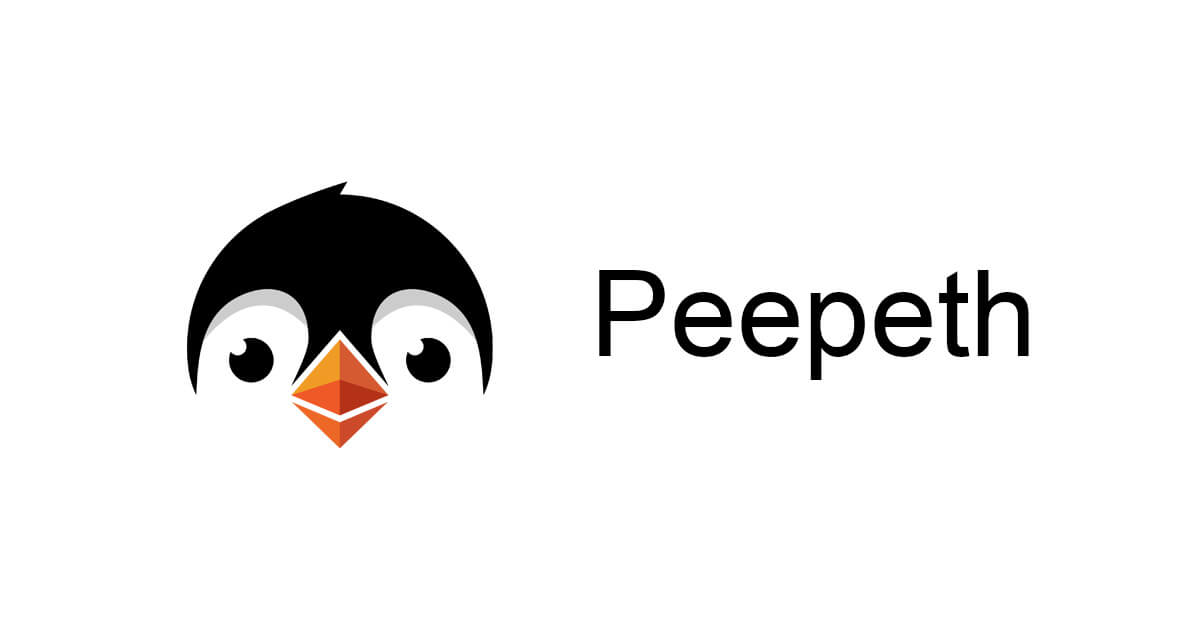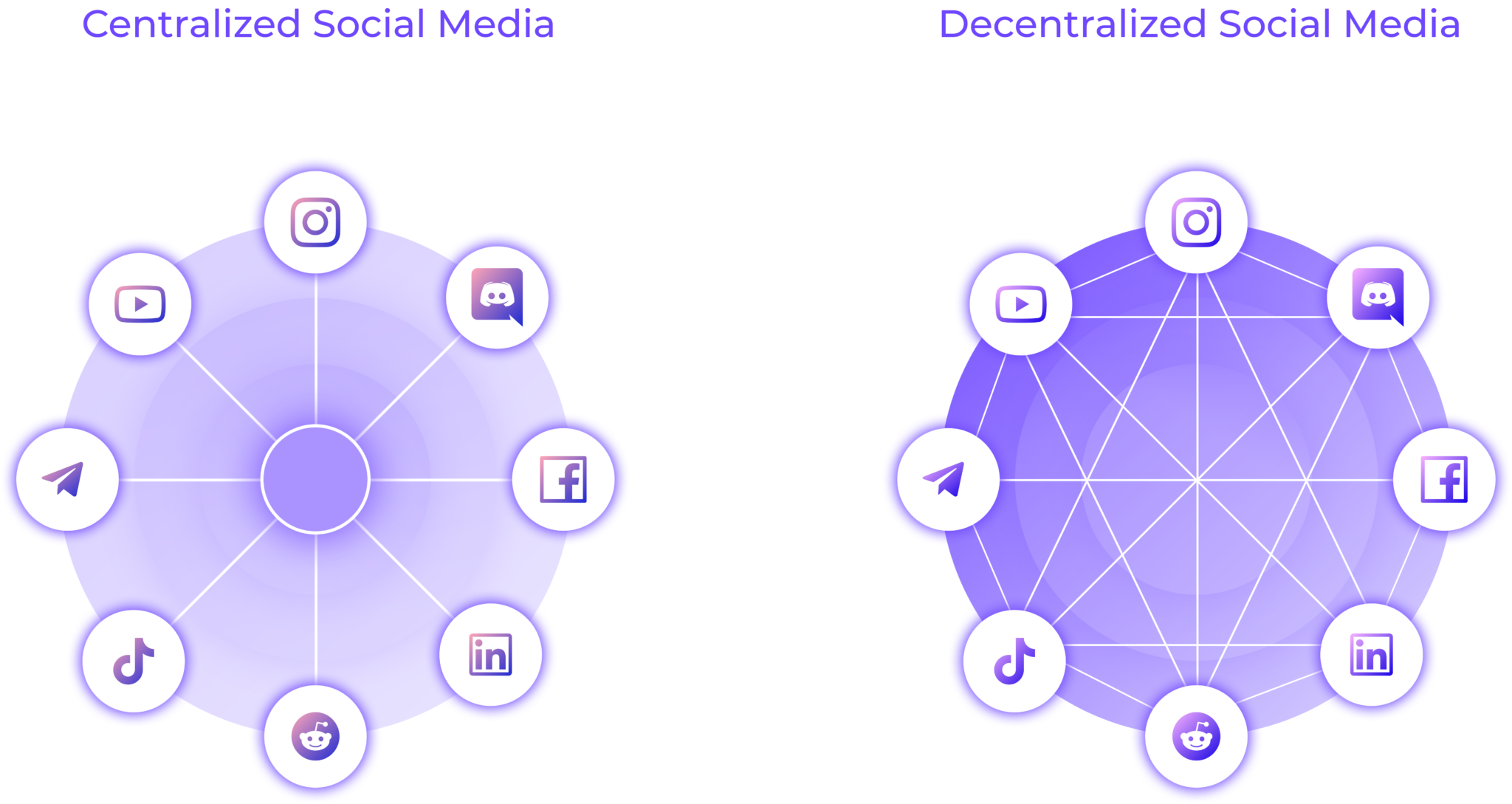Decentralized social networks are a type of social networking platform that aims to address the privacy and security issues associated with centralized networks. Unlike traditional social networks, decentralized networks are not controlled by a single entity, but rather comprise a network of interconnected nodes, each operated by a different individual or organization. This distributed architecture also allows users to retain ownership and control over their personal data, as well as greater transparency and autonomy in the governance of the network. Decentralized social networks represent a growing movement towards a more open, transparent, and democratic internet, and offer an alternative to the dominance of centralized platforms.
Damus
Damus is built on the Nostr protocol. Built on the popular Nostr decentralized social media protocol, Damus provides users with an interface that is simple and easy to navigate. Nostr is a protocol for social media that prioritizes data management and decentralized identity. This protocol employs multiple cryptographic keys. Its full name, Notes and Other Stuff Transmitted by Relays, reflects its focus on data management and decentralized networks. To utilize Nostr, one simply needs a cryptographically generated public and also private key. With Nostr serving as the foundation, anyone can endeavor to construct a decentralized network. Nostr nodes, called dumb relays, are the building blocks of this open protocol. The dumb relays move data between points while maintaining user privacy. These relays cannot process data, making them a standard decentralized option.
Damus provides end-to-end messaging and cuts censorship from social interactions. Damus is available on the App Store and does not capture or collection of user data. The Nostr protocol supports end-to-end encryption, ensuring secure messaging for its users. Damus is also one of the clients that can communicate with the Nostr protocol and its associated databases without requiring users to log in using their email IDs or phone numbers. The development team of Damus consists of 44 members, with William Casarin serving as the team lead.
Features
Damus facilitates tipping through the Bitcoin lightning network and plans to build bridges with other platforms. One of the advantages of using independent relays in Damus is that it can help companies create specific relays for specific employees, thereby bypassing the need for corporate messaging tools. With every device running Damus being a touchpoint, server outages would no longer be an issue. One of its innovative features is public key-specific user discovery, which is a way of discovering other users. The lightning integration in Damus allows seamless payments to content creators using Strike, a payments app, and the Lightning Network. Moreover, the use of Nostr relays helps Damus fend off DDoS attacks, making it more efficient than federated social network picks. Additionally, Damus is censorship-resistant, ensuring that one can never block views.
It aims to become a decentralized database, reducing over-reliance on blockchain and immutable ledgers as the choice of decentralized database. Damus utilizes a web socket-style query system that enables real-time retrieval of data. However, there are some cons to using Damus. For instance, the messaging relays need to be in sync, and public keys still need to be distributed for friends to verify the account. Moreover, not many people have started using it yet. Damus is also promising social media platform, and its connection to Nostr and Bitcoin makes it relevant in the decentralized space. Damus’s Google variant is Amethyst, and it is available on the Apple App store.

Mastodon
Mastodon is a free and open-source software that allows individuals to run their own self-hosted social networking services. It functions similar to Twitter, but has numerous nodes, called instances. They independently run and have their own set of policies, terms of service, content moderation policies, and privacy options. Each user is a member of a particular instance, which can operate as a federated social network, allowing users from various instances to interact with each other. The platform is a part of the Fediverse ensemble of computer servers that utilize shared protocols for interaction. Mastodon does not contain any ads and is crowdfunded. The project was created by Eugen Rochko in October 2016. The Mastodon platform belongs to a non-profit organization called Mastodon gGmbH, which is based in Germany.
Features
Mastodon allows users to communicate with each other using the ActivityPub standard. Users can post short messages called “toots” . They can join a specific Mastodon server, which is connected to a network of other servers. Each server can set its own rules and privacy options, and users can choose to make their messages public or private. Mastodon also includes a content warning feature to hide spoilers, trigger warnings, and NSFW content. Mastodon servers aggregate messages in real-time and display them in local and federated timelines. Users can communicate with each other across different Mastodon servers by using usernames formatted like email addresses. Mastodon organizes messages in two types of timelines: local and federated.
Messages from users on a particular server can be in the local timeline. While the federated timeline displays messages from all servers connected to Mastodon. Users can communicate with others on other Mastodon servers by using usernames formatted like email addresses. Mastodon is a social networking platform that aims to provide an ad-free and algorithm-free experience. Users can post messages of up to 500 characters, twice as much as Twitter, and can send direct messages, but servers may save message data. Instead of a top-down approach, individual server owners set moderation rules. Some servers have no moderation policy, but server owners can report and delete posts. Mastodon suggests users find a server that aligns with their preferences for moderation.
Unlike Twitter, Mastodon does not recommend accounts to follow or offer curated content. Viral content is less likely to occur since Mastodon is “antiviral.” Users cannot quote tweets like on Twitter.

Diaspora
Diaspora is a social networking platform that provides an alternative to centralized networks, which are often criticized for privacy concerns. The network is decentralized and comprises a network of nodes called pods, hosted by many different individuals and institutions. The Diaspora network has nodes, with each node running its own instance of the Diaspora software. This software functions as a personal web server with social networking features, allowing users to interact with each other across the network. Users have the option of creating their pod or account on any existing pod of their choice. They retain ownership of their data, including images and text, and can download all of it at any time. Diaspora’s distributed nature is a significant aspect of its design, allowing users complete ownership and control over their personal social information.
Features
Diaspora offers several features that set it apart from centralized networks. Users have the option of using pseudonyms, and user posts can be either “public” or “limited”. In the latter case, people of specific groups can only read posts, or “aspects,” which the user allows to view the post. On Diaspora, users have the option to follow another user’s public posts. They don’t need mutual friending. Additionally, the platform enables users to send private messages, known as conversations. Posts in Diaspora can include hashtags and “mentions,” and users can upload photos to posts, format text and links using Markdown, and propagate posts to connected accounts on WordPress, Twitter, and Tumblr. Additionally, Friendica instances are part of the Diaspora social network since Friendica natively supports the Diaspora protocol. Diaspora also has a strong anti-harassment policy. This helps to ensure that users can express themselves freely. without fearof trolls or other malicious users. Overall, Diaspora provides a unique and innovative approach to social networking that emphasizes privacy, security, and user control.

Peepeth
Peepeth is a decentralized social network and microblogging platform built on the Ethereum blockchain. It was founded in 2017 by Bevan Barton and David Mondrus as an alternative to centralized social media platforms like Twitter. Peepeth emphasizes ethical values, such as user privacy, data ownership, and transparency. It allows users to post messages up to 1,000 characters. These are also stored on the Ethereum blockchain. The platform incentivizes positive behavior through a system of badges that users can earn for actions like donating to charity, completing a user profile, or receiving endorsements from other users.
One unique feature of Peepeth is the ability to pay a small amount of cryptocurrency called “gas” to increase the lifespan of a message on the platform. By default, messages also expire after 30 days, but users can extend their message lifespan by paying a small fee in ether. Peepeth’s decentralized nature and emphasis on ethical values have made it popular among blockchain enthusiasts and those who also value privacy and data ownership. However, its use of cryptocurrency and blockchain technology may make it less accessible to mainstream users who are not familiar with these concepts.

Hive
Hive is a blockchain-powered content creation platform. Users on the platform are rewarded with the native cryptocurrency HIVE for their active participation in the community-run dapps). Hive network has completely decentralised governance system. Users who hold a stake in the network have voting rights. This system aims to secure and further decentralise the network’s many protocols. The blockchain is to operate using the Delegated Proof of Stake (DPoS) protocol, which relies heavily on users staking their wealth in HIVE coins. Under the DPoS protocol, users elect delegates (called Witnesses in the Hive network) who validate transactions and produce new blocks on the blockchain on behalf of investors.
Features
In the Hive network, there are 20 Witnesses that take turns producing new blocks in a randomised manner. Having a reduced number of network nodes (as opposed to the thousands in Bitcoin’s network) helps to maintain block times around 3 seconds and ensure fast transaction speeds, which is crucial for the network’s purpose. On Hive, Witnesses are also responsible for validating transactions and producing new blocks on the blockchain. However, they also need the support of users who delegate their HIVE coins to them. If a Witness misbehaves, users can also stop supporting them by withdrawing their delegation at any time.
Unlike other blockchains that use DPoS, Hive is specifically for social media dapps that require speed, security, and large storage space for media. What sets Hive apart is its Proof of Brain protocol, which rewards users who create high-quality content, powering a creative economy. On Hive, Witnesses are responsible for validating transactions and producing new blocks on the blockchain. However, they need the support of users who delegate their HIVE coins to them. Having a more decentralised network and community-led governance can make a blockchain network stronger and more resistant to censorship. As of October 2021, there are 39 dapps on Hive. While this is a smaller number, it’s important to note that Hive is specifically for blogging and content sharing.
How Genesis Convergence’s expertise can drive Decentralization for the future of Social Media?
Genesis Convergence can play a crucial role in the development of decentralized social media networks. Our expertise in blockchain technology, software development, and user experience design can help in creating a robust, user-friendly platform that ensures data privacy and security. We can also work closely with clients to determine the unique value proposition of their platform. We can choose the appropiate blockchain protocol and build the infrastructure and back-end technology needed to support the platform. Additionally, we can help clients navigate legal and regulatory considerations, such as data privacy laws and compliance with cryptocurrency regulations.
With our experience and expertise, Genesis Convergence is well-positioned to assist in the development of decentralized social media networks.
